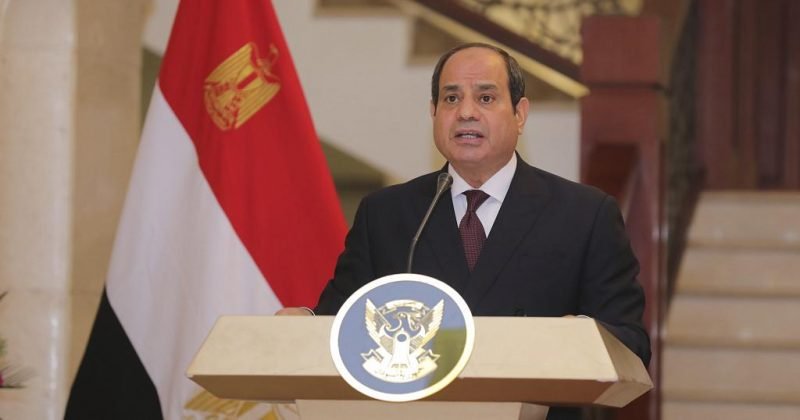On Tuesday, in a stark warning to Ethiopia, the President of Egypt said that his country’s share of the Nile River’s water is “untouchable.” Ethiopia is developing an enormous dam on the Nile’s main tributary. President Abdel Fattah el-Sissi’s comment comes amid a deadlock in the years-long talks over the Nile Basin countries’ barrier, Sudan, inclusive. At a press briefing, El-Sissi cautioned of “instability that no one could imagine” in the area if the Grand Ethiopian Renaissance Dam was built and operated without a contractually enforceable arrangement.
“No one can take a single drop of water from Egypt, and whoever wants to try it, let him try,” he said. “No one imagines it will be far from our capabilities.”
El-Sissi, the strongest on the dam’s dispute by an Egyptian official in years, did not name Ethiopia in his remarks. A media officer at the Ethiopian Embassy in Cairo declined to comment on el-Sissi’s comments. At a media briefing in the Suez Canal city of Ismailia, Egypt’s chief was adamant in his stance on the dam conflict. He paid a visit to the vital east-west waterway after it reopened on Monday. They had shut it down for six days after a giant container ship got trapped in the Suez Canal.
“I repeat that the waters of Egypt are untouchable, and touching them is a red line,” President Abdel Fattah el-Sissi said.
However, el-Sissi said his country prioritizes negotiations to resolve the lingering dispute before Ethiopia continues filling the dam’s giant reservoir during this year’s rainy season. Addis Ababa began filling the reservoir last July, a strongly criticized move by Egypt and Sudan.
“Our battle is a battle of negotiations,” the Egyptian leader said.
He added Cairo seeks a legally binding agreement based on international laws and norms that govern cross-border rivers.
The Grand Ethiopia Renaissance Dam
“We are serious about achieving a win-win (deal) for everyone, no. No one is going to get everything alone,” said Egypt’s president.
El-Sissi said they expect a fresh round of negotiations in the coming weeks. He did not elaborate on whether international nations would join the talks to mediate as Khartoum and Cairo demanded. Ethiopia has rejected the Egyptian-backed Sudanese proposal to internationalize the dispute by including the U.S., U.N., and European Union as mediators in talks that the African Union has mediated. The dispute centers on the speed at which a planned reservoir is filled behind the dam, the method of its annual replenishment, and how much water Ethiopia will release downstream if a multi-year drought occurs. Another point of difference is how the three countries would settle any future disputes.
Egypt and Sudan call for a legally binding agreement on the dam’s filling and operation, while Ethiopia insists on guidelines. Egypt is primarily a desert nation that relies on the Nile for nearly all of its water needs. It is feared that a quick fill would decimate the Nile’s flow, with potentially severe effects on its agriculture and other sectors. Ethiopia claims the five billion dollar dam is necessary because most of its citizens lack access to electricity. The dam will produce over 6,400 megawatts of electricity, significantly increasing its current output of 4,000 megawatts. Sudan wishes Ethiopia to organize and exchange data on dam operations to prevent floods and secure its energy dams on the Blue Nile, the Nile’s largest waterway. The Blue Nile joins the White Nile in central Sudan, then passes north through Egypt into the Mediterranean Sea.
Read More
- The GERD: Ethiopia Flip-flops On The Controversial Filling Of The Gigantic Dam
- Egypt, Ethiopia, and Sudan Agree to Delay Filling Mega Dam

















